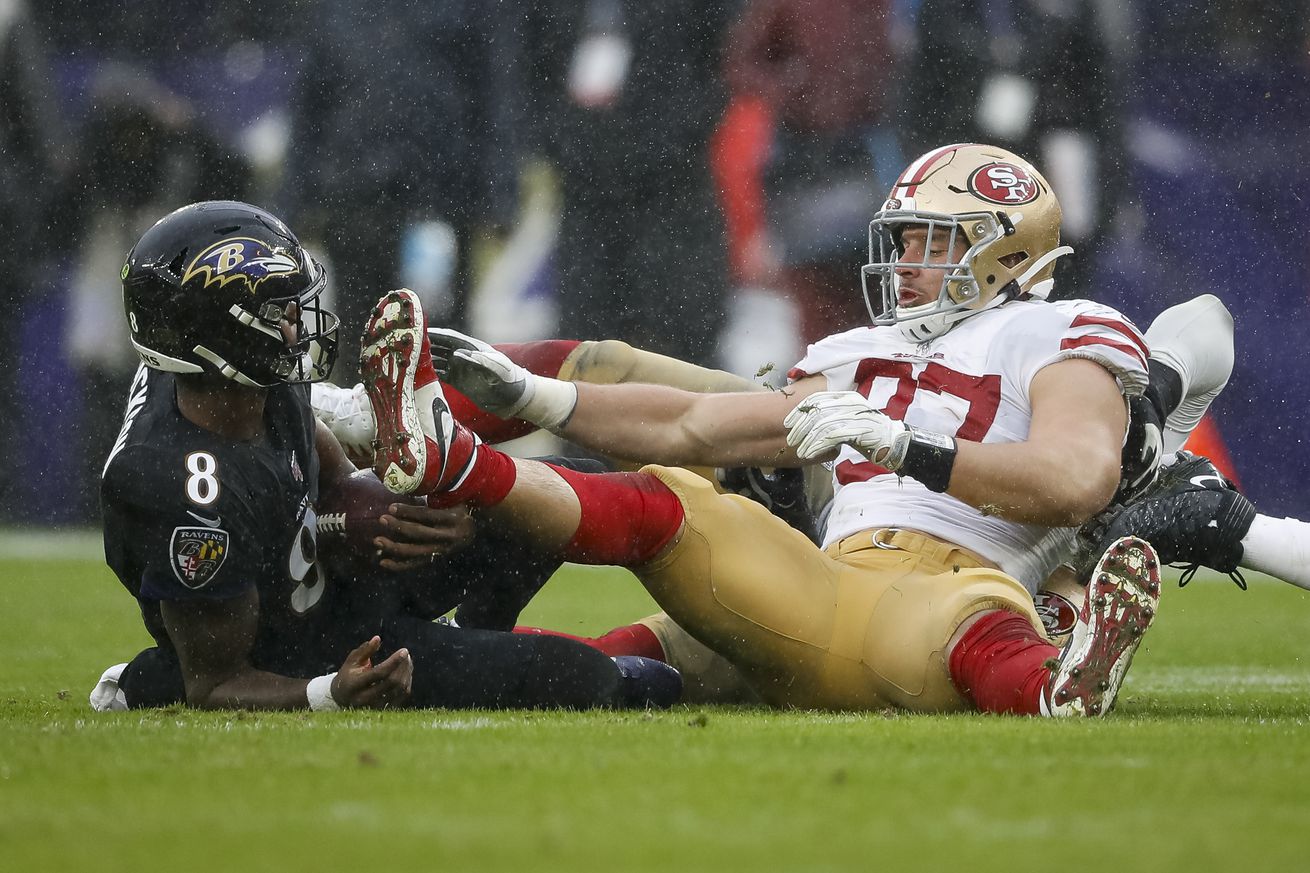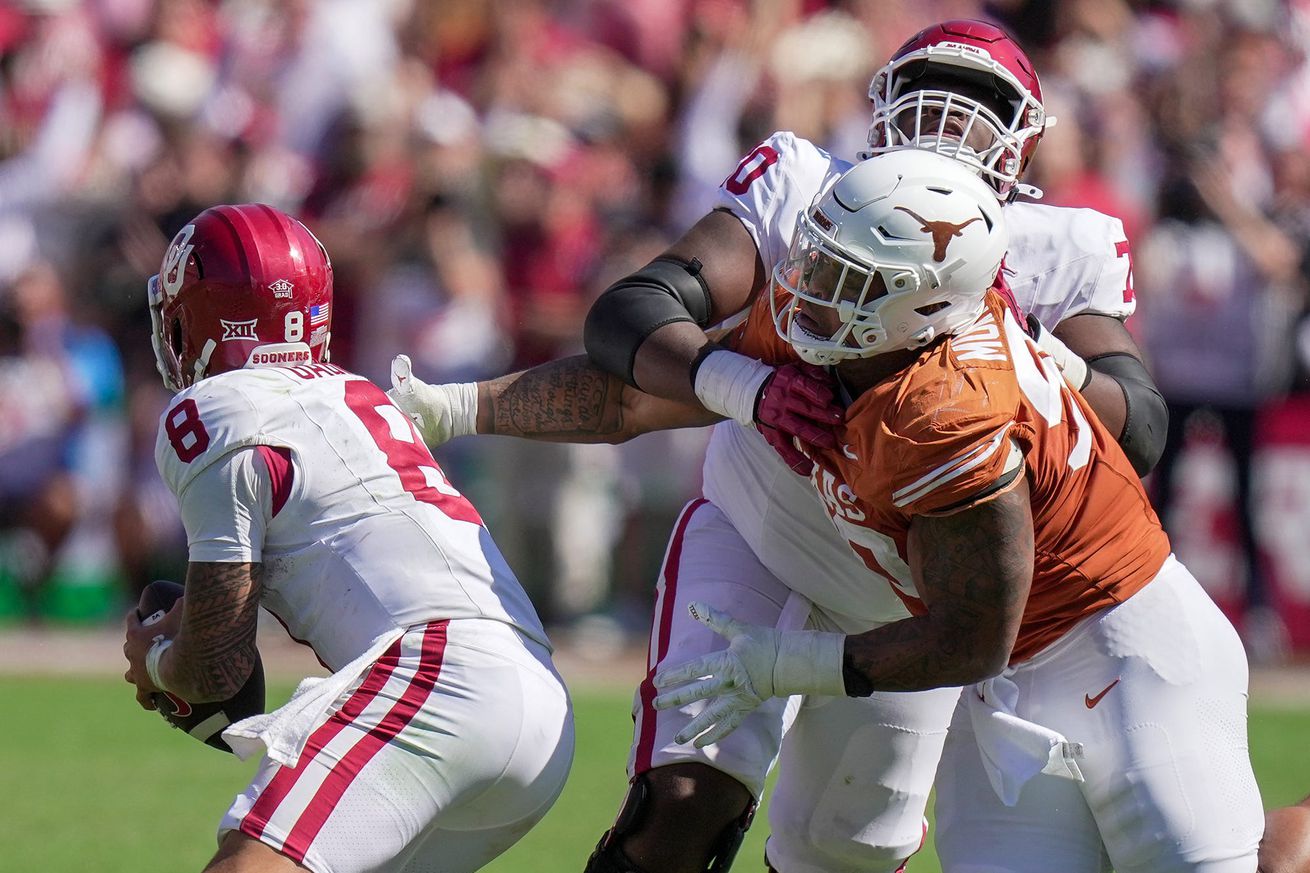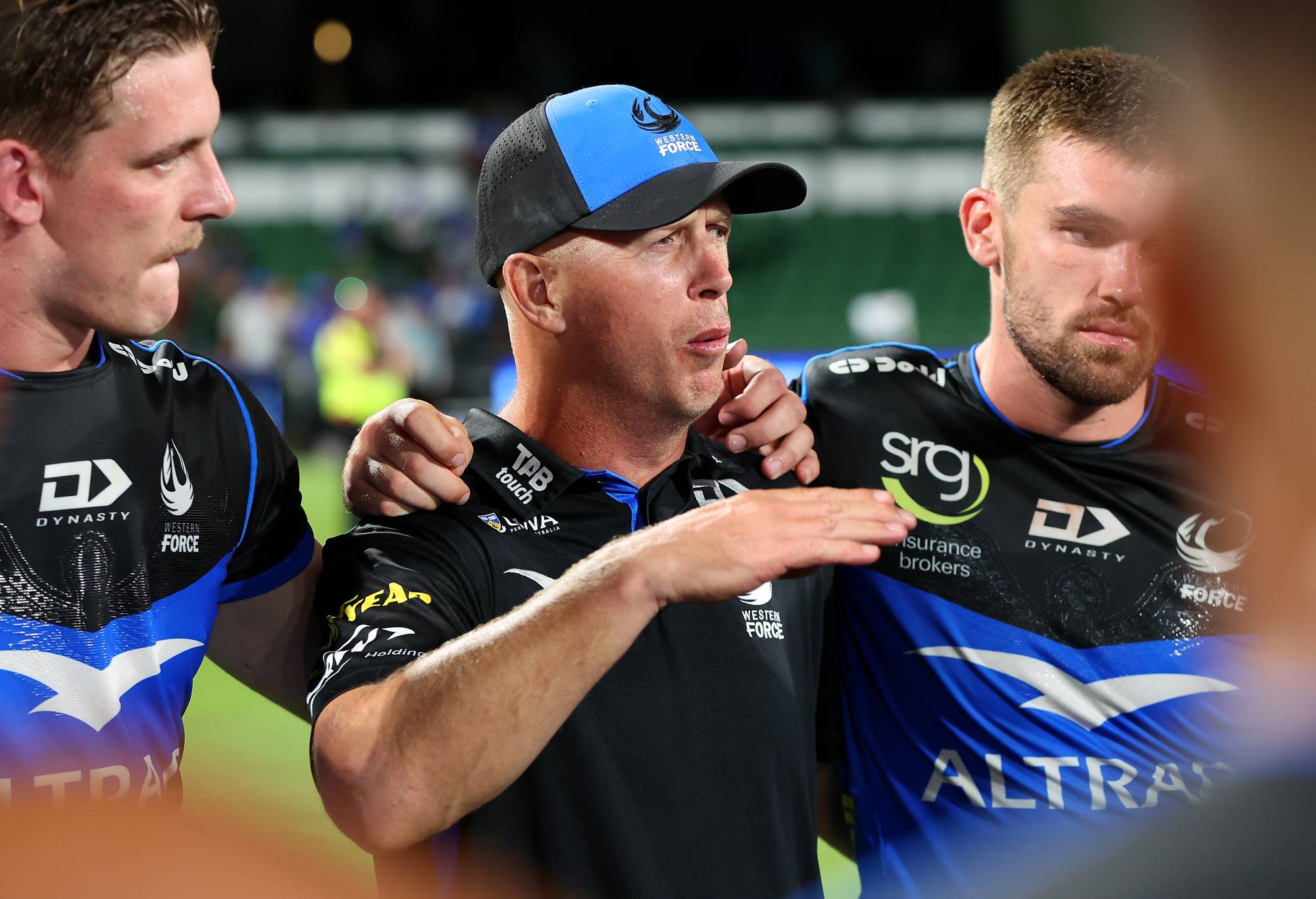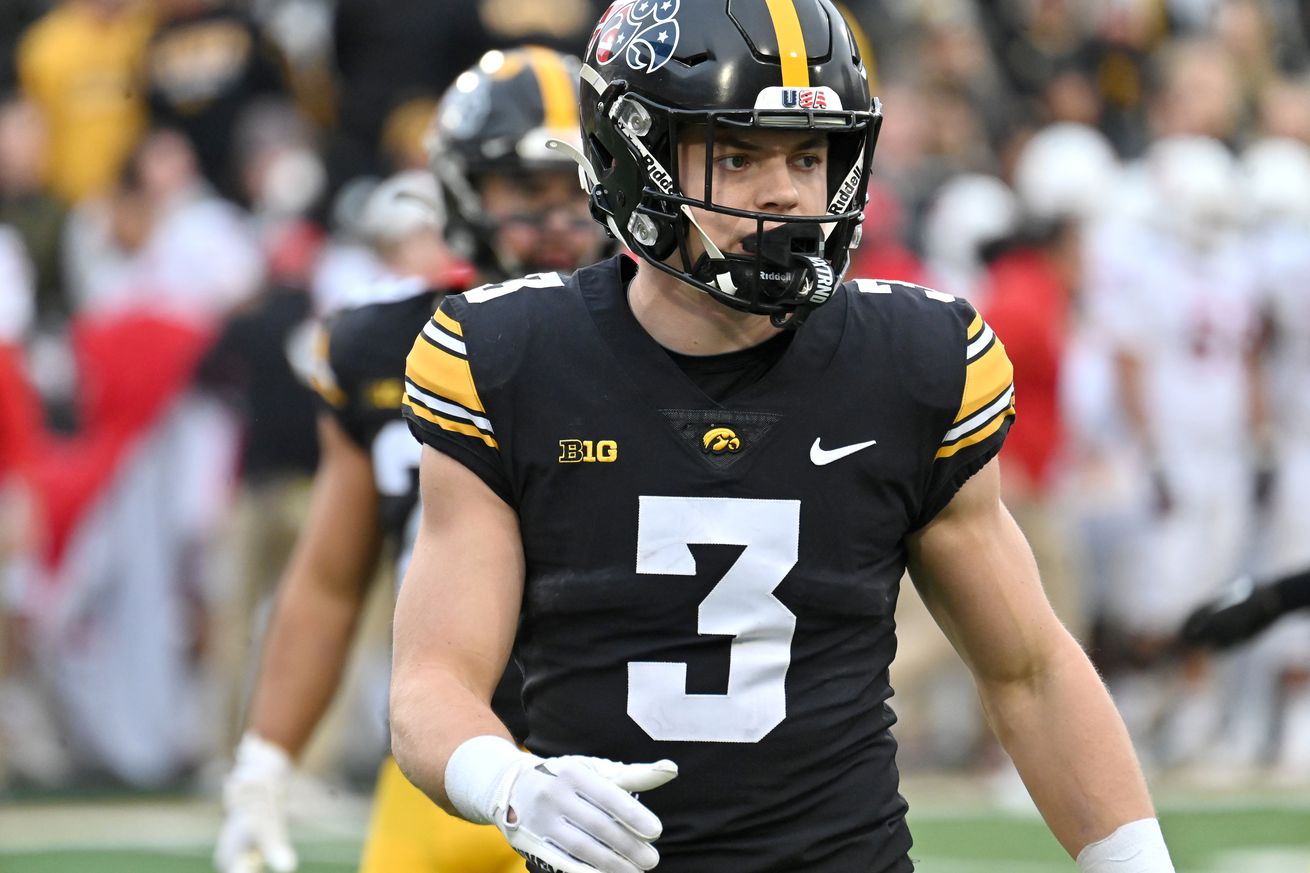
What would it take for the 49ers to acquire the 26-year-old star?
Editor’s note: This was written before the 49ers signed Sam Darnold, and is an obvious opinion piece. Lamar Jackson called Adam Schefter Tuesday morning for putting false contract details on Twitter. Jackson’s unhappiness with the entire situation is apparent.
The 49ers have been searching for a franchise quarterback since Kyle Shanahan became the team’s head coach in 2017, and with Brock Purdy and Trey Lance returning from major injuries this offseason, the Niners once again face uncertainty at the quarterback position. After inking Sam Darnold to a one-year deal at the start of free agency, the Niners seem ready to roll with Darnold and the youngsters next season, but it’s worth considering another possibility.
On the other side of the country, the Baltimore Ravens and quarterback Lamar Jackson have been unable to agree on a long-term contract extension. The Ravens were bold enough to offer Jackson the non-exclusive franchise tag last week, allowing him to negotiate with other teams. Jackson, the 2019 MVP entering his sixth NFL season, is arguably the most decorated quarterback ever allowed to negotiate contract terms with another team at such an early point in his career.
The non-exclusive tag allows Baltimore to retain Jackson by matching any contract he agrees to with another team. If the Ravens chose not to match, and Jackson officially signs with another team, the Ravens will receive a first-round pick from that team in the next two drafts.
Should the 49ers dip their toe into the Jackson sweepstakes? There’s certainly a case for it. While Purdy and Lance each have an intriguing upside, neither has proven himself through a full NFL season, and San Francisco’s roster is built to win now. Moreover, despite their youth, Purdy and Lance have both already dealt with more severe injuries than anything Jackson has dealt with over his five-year career.
The question is, how much would it cost the 49ers? After signing Javon Hargrave to There are several ways they could go about acquiring Jackson, and these are the three most straightforward paths:
1. An offer Lamar Jackson can’t refuse (and the Ravens won’t match)
Since the 49ers do not have a first-round pick in this year’s draft, they would either have to acquire one via trade (perhaps moving Brandon Aiyuk) or wait until after the draft to sign Jackson to an offer sheet. The Niners may not want to wait that long, but there is a growing expectation that Jackson will not receive an offer sheet from another team. San Francisco has demonstrated that they are willing to be patient during the offseason (e.g., Trent Williams), and patience could pay off in this hypothetical scenario.
One key point to inking a deal with Lamar would be designing a contract the 49ers can afford, one that Jackson is willing to sign, and one the Ravens will choose not to match. Luckily, there seems to be an obvious comparison that offers insight into the financial breaking point of the Ravens’ front office: Deshaun Watson’s deal with the Browns.
Ravens owner Steve Biscciotti’s comments on Watson’s deal suggest that Baltimore is unwilling to dig as deep into their pockets for a franchise QB. Watson’s contract with the Browns is a fully guaranteed five-year, $230 million deal ($46 million per year), with a cap hit of just under $9.4 million in the first year and just under $55 million over the following four.
The sizable guarantees in the deal are record-setting, but Jackson’s youth makes it far more palatable. At the end of a five-year deal, Jackson, who is 26 now, would only be 30 by the end of the contract. For a quarterback with an MVP award already on his resume who has never missed more than five games in a season, it seems baffling that teams are not lining up to make an offer. The crickets on the other end of Lamar’s line have led some to accuse NFL owners of colluding in an effort to keep the contracts of mega-starts below the level of Watson’s deal with the Browns.
It’s worth remembering that the 49ers reached a pair of NFC title games and one Super Bowl from 2018-2021 with Jimmy Garoppolo missing 38.5% of the team’s regular-season games while taking up more than $27.6 million in cap space per year. The NFL’s salary cap is already going to be $40 million higher in 2023 than it was in 2021.
In fact, the current CBA sets the 2027 salary cap, which would be the final year of Jackson’s hypothetical five-year contract, at $328.2 million. In 2021, Garoppolo took up roughly 13.7% of the 49ers’ cap space. 13.7% of $328.2 million is roughly $45 million. It could be argued that in an age of exponential salary cap growth, spending $40-$50 million a year on a starting quarterback is just keeping up with inflation.
The size of Watson’s contract was norm-breaking, even as it threw the moral integrity of Browns’ top brass into question, given the dozens of accusations of sexual misconduct against the QB. Offering the same deal to a quarterback like Jackson, who has none of the off-field baggage and a more impressive on-field track record statistically and in the win-loss column, should be far easier.
The Niners could make that contract work for 2023, although the long-term consequences would be undeniably miserable. They likely would have to part with some notable contributors like Brandon Aiyuk, Arik Armstead, George Kittle, and Christian McCaffrey next offseason.
2. Trade Nick Bosa
Ravens acquire: DE Nick Bosa and QB Trey Lance
49ers acquire: QB Lamar Jackson
The easiest path for the 49ers to acquire Jackson before the draft involves making a trade with the Ravens. While the Niners may not have any top picks in this year’s draft, they have one of the most talented rosters in the NFL. For a Ravens team that has no interest in rebuilding, the talent on the Niners’ roster could be very appealing. As an added incentive for the Niners, trading for Jackson would probably give them more flexibility to negotiate a more favorable contract with their new quarterback.
Well, the 49ers have a star of their own who will likely sign a long-term contract this offseason: Nick Bosa. Bosa is currently set to earn about $17.9 million in 2023, playing on the fifth-year option in his rookie contract. While the Niners could be on the cusp of signing him to a record-setting deal that will likely be worth more than $30 million per season, he could also be the biggest non-quarterback trade chip in the league.
The Ravens do not want to rebuild. In the event they traded Jackson, they would be planning to compete for a title without him next season. No team will offer the Ravens a better player than Bosa.
Mixing Bosa’s upside with the potential upside of a quarterback prospect like Lance would make the 49ers offer for Jackson extremely compelling. Baltimore would be hard-pressed to find an offer with the potential to make such an immediate impact. Bosa would immediately become the Ravens’ best edge rusher since Terrell Suggs and Lance could compete with Tyler Huntley to lead their offense next season.
As for the salary cap, trading Bosa would actually solve the majority of that problem. Lance and Bosa’s combined cap hit in 2024 will likely eclipse $35 million, possibly $40 million depending on the structure of Bosa’s contract. If Lance ends up proving to be the Niners quarterback of the future, his fifth-year option will cost more than $20 million in 2025, and he will be in a position to sign a massive extension of his own.
The 49ers could add a proven MVP-caliber quarterback without sacrificing future draft capital or salary cap flexibility. Obviously moving Bosa would create a massive hole along the Niners defensive line, but offense wins championships in the modern NFL, and a defensive unit built around Fred Warner, Arik Armstead, Talanoa Hufanga, Mooney Ward, and offseason signing Javon Hargrave should be good enough to win a title.
3. Test their depth
Ravens acquire: WR Brandon Aiyuk, RB Christian McCaffrey, QB Trey Lance, 2024 1st-round pick
49ers acquire: QB Lamar Jackson
Trading someone as undeniably elite as Nick Bosa could be too large of a pill to swallow for the 49ers. However, with one of the most talented rosters in the NFL, they could still make the Ravens some compelling offers.
The Ravens’ struggle to acquire quality pass catchers over the past few seasons is well documented. The prospect of teaming Brandon Aiyuk and Christian McCaffrey with Mark Andrews should also get their attention.
The 49ers had the most talented group of skill-position players in the NFL last season, but they would still have Samuel, Kittle, Elijah Mitchell, Jordan Mason, Kyle Juszczyk, and Jauan Jennings for Jackson to target. Plus, they would immediately become a desirable landing spot for free-agent veterans, like a certain celebrity receiver.
Teams represented at Odell Beckham Jr.’s private workout in Arizona today included the Panthers, Giants, Patriots, Rams, Cardinals, 49ers, Bills, Chiefs, Vikings, Browns and Ravens, per source.
— Jonathan Jones (@jjones9) March 10, 2023
Trading McCaffrey, Aiyuk, and Lance would only create $12 million in cap space this season for the Niners, although it would clear more than $36 million off the books in 2024 (assuming Aiyuk’s fifth-year option is exercised). Obviously, Jackson’s contract will take more space than that, but it would be very manageable going forward.
While the Niners would be parting with several valuable pieces, Lance is ultimately unproven, McCaffrey is a seventh-year running who has clocked a lot of miles and has already suffered a severe season-ending injury, Aiyuk is due for a big extension soon, and odds are the Niners first-round pick next season is outside the top-20. All that is worth sacrificing to get an elite quarterback like Jackson.
From Baltimore’s perspective, the Ravens would free up long-term cap flexibility, adding McCaffrey to a running back room that already features J.K. Dobbins and Gus Edwards, acquiring a number one receiver coming off a 1,000-yard season in Aiyuk, and a tantalizing quarterback prospect in Lance, while also getting an additional first-round pick in next year’s draft.



















You must be logged in to post a comment Login